The brutal police killing of George Floyd painfully shows that racism and excessive and inappropriate use of force by police officers in the United States persists, writes Vanda Felbab-Brown. She offers lessons for Mexico, where there, too, she explains, police abuse does not escape from hatred toward minority groups, where indigenous Mexicans often suffer highly unequal treatment by Mexican police forces. This piece was originally published by La Reforma’s Mexico Today.
The past two weeks in the United States have been full of trauma, pain, and shame, revealing again deep-seated racism and profound policy deficiencies for combatting it, and highlighting the catastrophic, immoral, dictatorial, and reprehensible policies of Donald Trump. The turmoil in the country and ways out, including lessons for police reform, are highly relevant for Mexico as well.
The brutal police killing of George Floyd painfully shows that six years after the killing of another African American Michael Brown by a police officer in Ferguson Missouri, racism and excessive and inappropriate use of force by police officers in the United States persists. Structural racism in our country persists in many ways. In Mexico, police abuse is even more widespread and does not escape from hatred toward minority groups. Indigenous Mexicans often suffer highly unequal treatment by Mexican police forces: allowing indigenous communities to self-police is an important, but insufficient step. It does not stop abuse by Mexican police forces from outside.
In the United States, the awful situation was made worse by the President Trump’s decision to unleash the National Guard and a highly violent police response against peaceful protests in sympathy with the Floyd family and against racism and police brutality. For no reason other than a frivolous and inappropriate photo-op, the President ordered that non-violent protestors be cleared out of his way so he could pose with a bible in front of St. John’s Church in Washington, DC. The president has disparaged the nonviolent protestors as looters, urged governors to “dominate” the streets , and threatened to use the U.S. military against the protestors . Instead of unifying the country, President Trump has made a mockery of justice and compassion, acting like a wannabe dictator unrestrained by laws, morality, or empathy. This is hardly surprising from a man who has sought to provoke confrontations and egged on far-right groups to engage in armed intimidation from Michigan to Virginia. What is shocking is how much the top leadership of the Department of Justice, sworn to uphold U.S. laws and rule of law in the country (not to loyalty to the president) has failed to restrain Trump and has tried to justify his ill deeds.
The collapse of policing forces in Mexico has necessitated the troubled deployment of the military, something even the administration of President Andrés Manuel Lopéz Obrador (AMLO) has not been able to escape, despite its creation of the National Guard – a force strongly composed of the military. Crucially, however, all security forces acting at home must enforce rule of law with the least amount of necessary forces and without brutality and law violations.
Peaceful protests are essential for democracy and rule of law. So is making sure that peaceful protests stay peaceful, violence and looting are prevented, and perpetrators of violence get arrested — but with the minimum necessary force.
The past two weeks in the United States have also been a time of hope. People of all races, colors, and age groups have joined the peaceful protests. Young people across the country have embraced ending racism as their responsibility and calling. Police officers across the country have “taken a knee” in support of the protests and the condemnation of police brutality. Police departments in the United States are substantially more multiethnic and racially diverse than they used to be. Many police chiefs and police associations have condemned the actions of the officers who tortured and killed Mr. Floyd. Three former U.S. four-star generals – James Mattis, Mike Mullen, and John Allen – have denounced President Trump’s efforts to polarize our country, his resort to violence, and his abuse of executive power and disregard for the U.S. constitution.
In Mexico, the U.S. events have also revived discussions of security forces brutality – after local police officers in Jalisco state egregiously beat to death Giovanni López for allegedly not wearing a face mask as bystanders pleaded with the police to release him.
In the U.S. and Mexico, there is a crucial need for systemic and concrete change throughout the justice and law enforcement system. That requires not just street activism but policy leadership commitment and improvements in policies, procedures, and safeguards.
A thoughtful younger colleague who has protested daily over the past week and who was subjected to the Trump-ordered violence asked when it is OK for police and military officers to disobey an order. It is certainly legal and necessary for police officers and soldiers to disobey an unlawful order, such as murder, including in war. However, by choosing to become police officers and soldiers, individuals sign up for a necessary and fundamental willingness to obey orders that are legal even though they consider them wrong. Thus, the police officers cannot simply choose not to enforce announced curfews or refuse to clear streets of protestors. Rule of law requires enforcing laws. The challenge is to make laws and practices better. If officers, in the name of justice, refuse to carry out an order that is legal, what is to stop them from failing to carry out legal orders against unjust causes and actions, such as intimidation by right-wing armed protestors storming a government building? Why would violent actors not become emboldened? If police or military members decide they cannot carry a lawful order, they must resign. The standard of compliance for them is much higher than for the rest of the public.
Rather than asking our police officers to refuse to implement lawful, although bad, orders, the needed changes must include determined effort to teach human rights and respect for diversity in police academies; stamping out racism there and in other institutions; scrupulous investigation of any killing by a police officer, including by pulling the officer off duty until a thorough investigation has been carried out, and diligent prosecution of police officers who commit murder or use force in excess of what is strictly required. The needed policies also include a thorough review of use-of-force guidelines by mayors, governors, and police chiefs and their publication for public assessment and transparency. Such tools are highly appropriate in Mexico too.
Meaningful action can also be taken by those who do not have direct policy influence. A young friend of mine whose Mexican father died in prison because a correction officer knelt on his neck, in almost the same way that killed Mr. Floyd, had launched a legal action that resulted in court-ordered improvements to police and corrections practices in her jurisdiction. Having committed herself to work on criminal justice, she now shared all of her caselaw with the Floyd family’s legal team. Along with two other students, she is creating a national publicly-available database of police officers with a history of brutality based on public records, newspaper articles, official press releases, and legal pleadings. Similar databases and initiatives can be launched in Mexico.
Finally, the rightful outrage against racism, bigotry, injustice, and abuse of power must be translated into voting out terrible leaders.
The Brookings Institution is committed to quality, independence, and impact.
We are supported by a diverse array of funders. In line with our values and policies, each Brookings publication represents the sole views of its author(s).

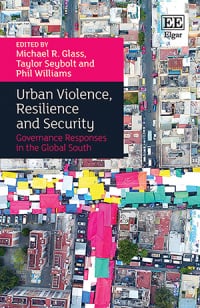
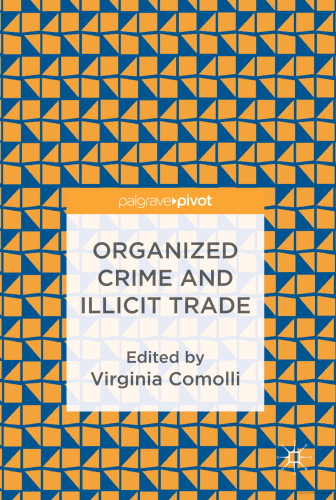

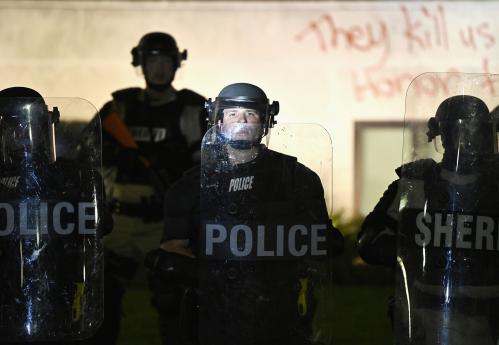
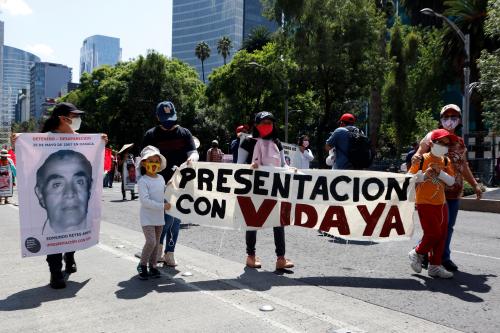
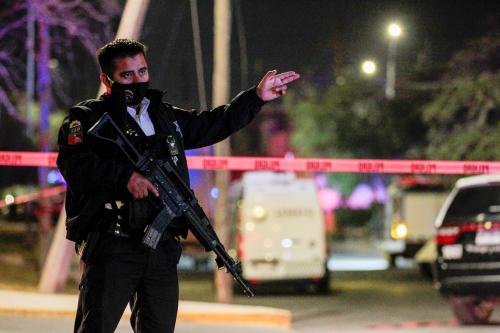

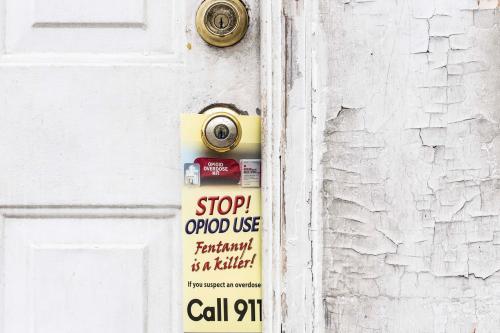
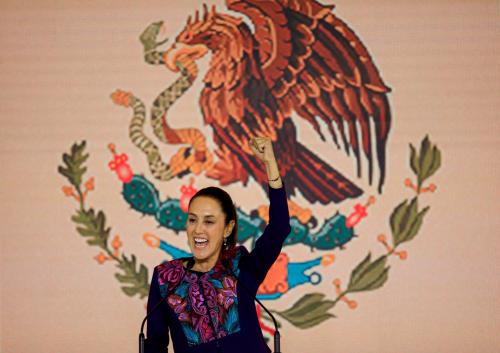
Commentary
Hatred and police brutality in the U.S. and lessons for Mexico
June 8, 2020